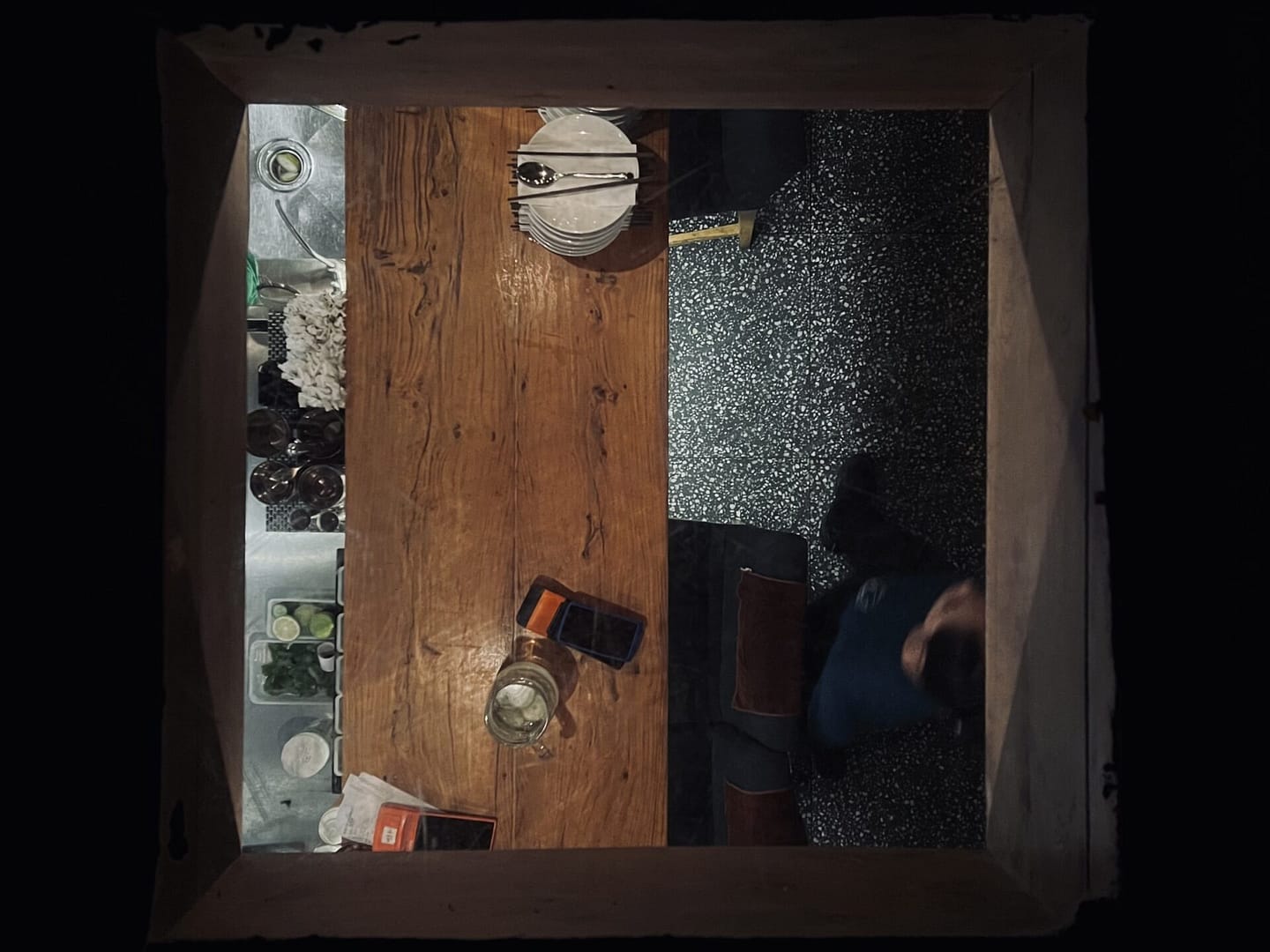For about half of my college years, I owned what we now call a “dumb phone.” It was a black keypad Nokia, which surprisingly had a decent camera. At the time, it was a source of insecurity; I never found it in me to ask my parents for a “smarter” phone. I did own an iPad, though, so I wasn’t completely out of the loop. But in hindsight, it had also been a source of some silent pride.
At lunch, for instance, I just ate, or started a conversation with whoever was next to me. On walks, I just walked. On the toilet, I just pooped. Looking back, I can’t think of the last time I was as consistently present and in the depths of each ordinary experience as those dumb phone years. Today, it all sounds like torture. Clearly someone’s been losing the fight to screen addiction.
I’m reminded of another distinct memory from college. I had joined the dormitory choir, which sang at the Church of the Gesù on campus every Sunday at 6 PM. At the end of one Sunday Mass, I remember approaching Kuya Kev, who was the conductor at the time.
“I’d like to join the choir, but I can’t sing,” I told him.
“Don’t worry, we’ll teach you,” he replied.
By the end of it, I still wasn’t a particularly good singer, but I was always good at pretending—and eventually, I learned how to blend in with the other voices.
On Thursday evenings, we would have choir practice at the Cervini dormitory prayer room. In one particular session, we were relatively few—about six choir members compared to the usual 10 or 15. This was expected, as most of us were in the middle of a “hell week”—a time when papers, exams, reports, and other requirements all piled onto a single week.
For this session, we were learning Fr. Arnel Aquino’s I Am Ever With You. Things were going rather well—until we reached these lyrics:
When you feel that you’ve been emptied
And can give no more,
Know that I am your breath
And I fill your soul
The words felt like a warm hug, but they quickly turned into an invisible ball of light and sound and relief so overwhelming that it pushed the tears out of my eyes. And I wasn’t alone. Sarah to my left was in tears. So was Kurt, who was seated on the floor. Patrick on the piano was glassy-eyed as well. The words struck a chord in everyone that evening.
I am with you ’til the end of your days
I am in you, have faith
That I hold you even when you let go
And I love you, you must know
I am here
I am ever with you
Ate Mich, who was the moderator for the choir, was seated to my right. She held my hand and asked me what was wrong. I was just tired, I explained. From handling multiple projects across various orgs to staying on top of my academic requirements—it was a lot. We were all just tired.
“You know,” she said, “It was St. Ignatius who said non multa sed multum, which means, ‘not many, but much.'” She didn’t have to say more. I understood.
It was clear that I was spread too thin, unfocused, and burnt out. And there really is only one cure for burnout: not many, but much. I took those words and held onto them so tightly that I still find myself repeating them to this day, ten years later.
Non multa sed multum.
Depth over distraction. Depth is the way.
They say that if we want to make our money’s worth, we shouldn’t buy more things. Instead, we should spend our money on experiences. I think this, too, is a depth issue.
When we buy experiences—tickets to a show, a flight to a new place, a hiking trip—we turn an otherwise ordinary moment into one that is much deeper. Every second spent feels like an amplified second, as if there were more time folded into it. More time within time.
They say money can’t buy us time, but this might be the closest we can get to that impossibility.
In the same way, we can do this to any other ordinary experience, free of charge—but only if we are present. We deepen a moment when we immerse ourselves in it. In this case, time is bought not with money, but with attention.
Lately, I’ve been trying—and failing—to cultivate more depth in my life. Maybe carving out the time to write this is a step toward that. I want to return to dumb-phone levels of presence, without actually letting go of my phone—if that’s even possible.
Just a few days ago, I was telling Iphigenia, who is Greek, how I truly enjoy having done things, but don’t necessarily enjoy the doing part. In response, she shared the poem Ithaka with me. It was written by Konstantinos Kavafis, who is also Greek and apparently widely known in Greece.
The poem alludes to Homer’s epic The Odyssey, which is essentially the story of Odysseus’ journey home to Ithaka:
As you set out for Ithaka
Hope the voyage is a long one,
Full of adventure, full of discovery.
She explained that it’s a poem about enjoying the journey—enjoying the process. Hope the voyage is a long one.
I think to myself, maybe this is where we begin. Maybe this is the way to depth.
Keep Ithaka always in your mind.
Arriving there is what you are destined for.
But do not hurry the journey at all.
Better if it lasts for years,
so you are old by the time you reach the island,
wealthy with all you have gained on the way,
not expecting Ithaka to make you rich.
Ithaka gave you the marvelous journey.
Without her you would not have set out.
She has nothing left to give you now.

